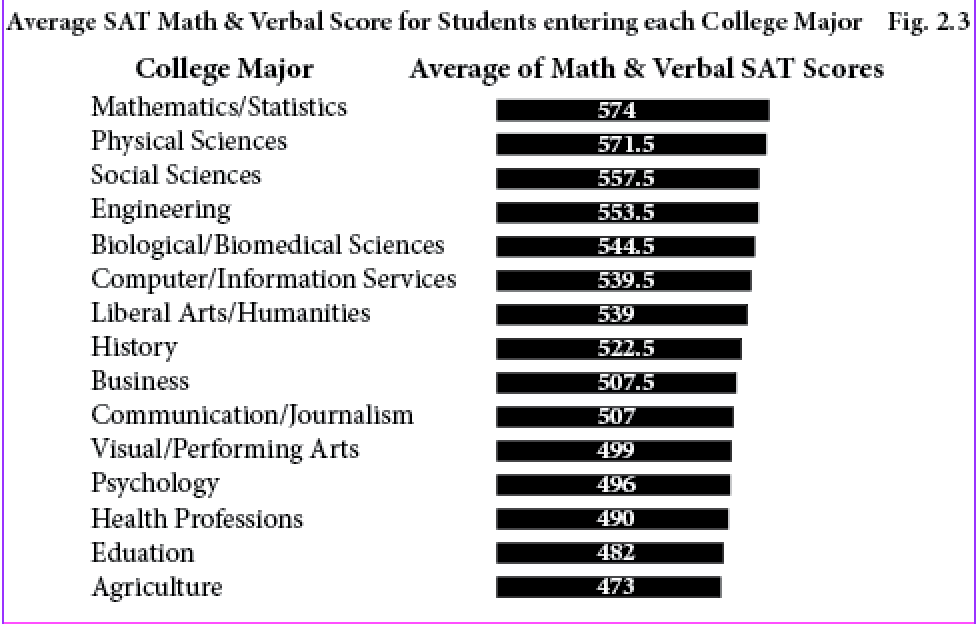Comparing average IQ’s across college majors can be misleading because the variation in IQ’s within a major is much greater than the variation across majors. That is, there is a very wide difference in the IQ’s of students in any particular major, so the person with the highest IQ in a major like education may have an IQ greater than the IQ’s of most of the students in theoretical physics. However, there are general trends that are worth exploring. For example, only those with an IQ high enough to score well on the SATs will be able to gain admission to theoretical physics or mathematics, while people who score lower on the SATs will be able to gain entry into programs in education or some of the social sciences. (Implicit in these comparisons is the assumption that there is a reasonably strong correlation between IQ and SAT scores.)
The figure below from the College Board gives the average SAT score by college major for the year 2014.

We see that the highest average SAT scores are earned by those in the STEM subjects, while the lowest are in agriculture and education.
In their controversial, but seminal book, The Bell Curve, Herrnstein and Murray identify those in the “high-IQ professions.” These include accountants, architects, chemists, college teachers, dentists, engineers, lawyers, and physicians. They state:
The mean IQ of people entering those fields is about 120, give or take a few points. The state of knowledge is not perfect, and the sorting process is not precise. Different studies find slightly different means for these occupations, with some suggesting that physicians have a mean closer to 125, for example. Theoretical physicists probably average higher than natural scientists in general.
In my years as a professor teaching mathematics to graduate students in both mathematics and mathematics education, I have seen people of high IQ in both fields, however, there were almost no people of modest IQ among those studying pure mathematics, while I saw many in education who were average IQ. Of course, these observations don’t have much meaning when applied to any particular individual. Their main value lies in making decisions that are vital to answering questions such as, “Are we drawing our teachers from the ‘best and brightest’ sectors of society?”
